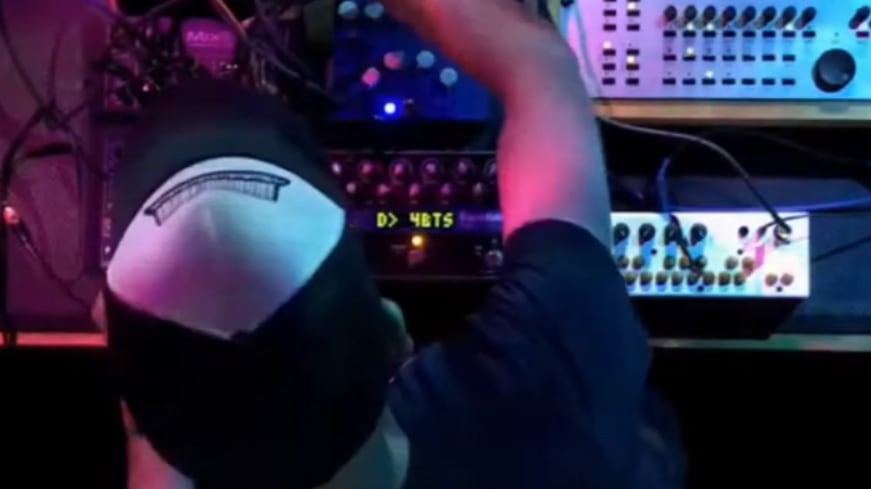The Wet Room, the latest album by Portland producer Paul Dickow’s prolific Strategy project, is one of the most unsettling visions of apocalypse-by-flood in electronic music since Mike Cooper’s Playing With Water. This isn’t a vision of a world in flames or a “dumpster fire,” but one where the sun is a little too bright, the water is a little too warm, and a sunny day at the beach would seem perfectly pleasant if it weren’t the middle of December in Oregon.
The album opens with the distressed voices of a couple discussing the end of the world. “What are we going to tell our children?” asks the woman. “We tell them the truth,” says the man. “We destroyed it.” A prophetic-sounding sample, perhaps from a ‘70s roots-reggae song, sings “sun comes down and the earth gets hot.” Not long after, we hear unseasonal weather forecasts from around Portland.
This is an album about climate crisis, no doubt, and some of the synth sounds suggest ticking time bombs or tsunami sirens. But Dickow arguably lays it on a bit thick with the voice-overs—especially the portentous echo he throws on words he deems to be particularly important—and The Wet Room works best when it suggests a humid and uncomfortable environment, evoking a drowned world rather than simply stoking paranoia about the possibility of one.
Dickow shrouds his music in swaths of static, reverb and dub delay that suggest everything is being viewed through thick clouds of steam. Nearly everything sounds slimy, wet, peaty, mossy and organic. Human voices become distant and ghostly, as if filtered through broken radios and faulty transmission lines. Sampled bird chirps abound, and some of the filters Dickow uses on his basslines and sequencers sound like the buzz of insects and the squawk of parrots, suggesting a world reclaimed by nature.
The Wet Room is the second of two albums Dickow released in 2023, the first being last January’s Graffiti in Space. Graffiti already seems destined to become a classic in the tiny genre known as dub techno: music that runs dance music through the mad-scientist filters of dub reggae, often stripping away the beat and leaving only cold expanses of stasis. While dub techno is often a conservative genre, exalting and rarely straying far from the template pioneered by German duo Basic Channel in the ‘90s, Dickow’s approach was far more restless, encompassing both ambient soundscapes and noisy, clanging, metallic bruisers.
The Wet Room borrows a few elements from Graffiti, not least the substantial influence of reggae, which isn’t a bad style to rip off if you’re interested in making music that sounds both apocalyptic and oppressively sunny. These tracks move at a languid pace that situates them closer to the sound of vintage Jamaican dub than the propulsion of techno.
The album also feels derived from the “unknown, silly, fun, outrageous, cheap dance music” Dickow sometimes spins at Portland arcade Ground Kontrol. “Deadly Rainbow” runs drum ‘n’ bass breakbeats through thick effects until they sound like dew dripping off a branch; “Meanwhile Moon” is practically disco, while “Heat” skirts the edges of acid house with the faint burble of a sequencer.
Much of this music approaches what you might hear in a spa or a chill-out room, and even the toxic-jungle atmosphere feels faintly kitschy, like the whole thing is taking place in the decrepit remains of a Rainforest Cafe. But Dickow’s restlessness with sound keeps the music from ever fading into the background, and even the more ambient tracks like “Numeros” and “Mysteries Inside the Dogmind” crackle with sound effects, static interference, and samples competing for space.
That’s all to say that the album has a streak of restlessness and discovery that belies its apocalyptic concerns. Dickow’s music has always sounded spontaneous, and he works fast and loose, often releasing several albums a year. The weighty subject matter featured on The Wet Room is no match for the joy Dickow displays in unleashing himself on his gear, turning knobs and buttons at abandon to see what happens.

